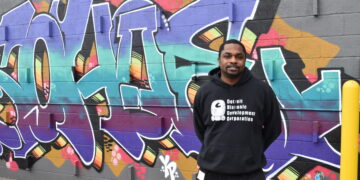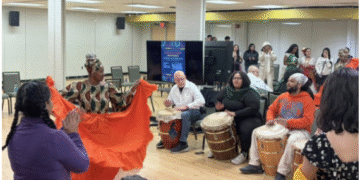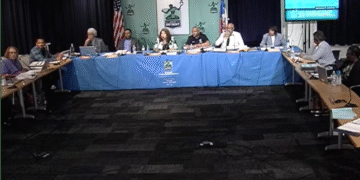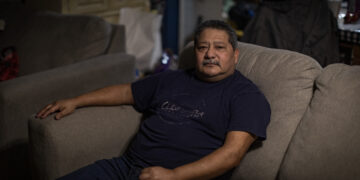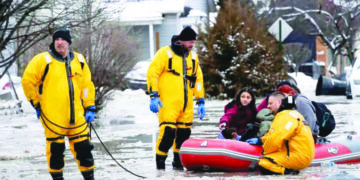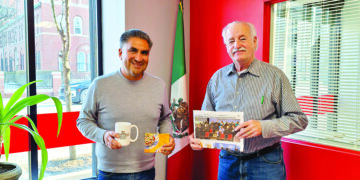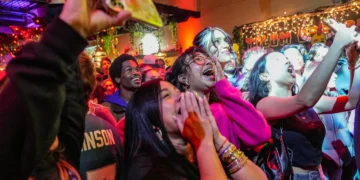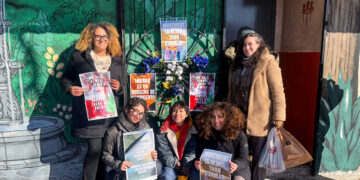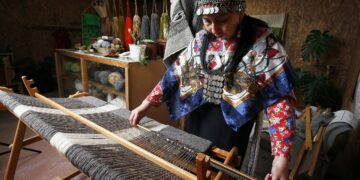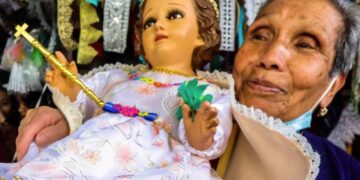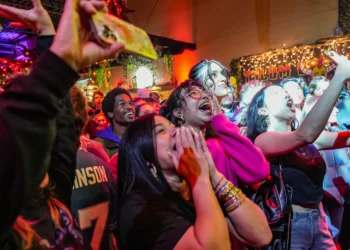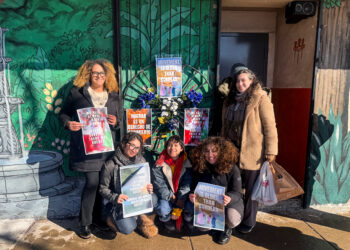In the historic Lithuanian Hall in Southwest Detroit, Paula Anderanin stands behind her DJ-quality turntables and blasts a Latin mix. The hall, now known as Candela, is where Anderanin envisions a music venue that reminds her of the free-spirited nightlife in Argentina, where she grew up. As she stands on the stage blasting her music, she can’t wait for the day the building will be open for the general public to enjoy.
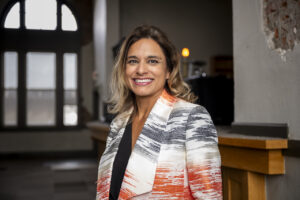
“I want to build experiences; I want to bring an ode to old school Copacabana with live music and dining. If we do music from a specific region of Mexico, then we have cooks from the region, Anderanin said. “If we do Puerto Rican salsa, we will have Puerto Rican cooks. Of course, when we do Argentinian tango, then we will have a really nice steak.”
After years of looking for the right venue, Anderanin recently purchased the Lithuanian Hall in Southwest Detroit. She spent months searching for the right space and almost bought the Stratford, an old theater on Vernor that used to show Mexican movies. The redevelopment of the theater was cost-prohibitive for her and would have taken years to finish. Anderanin also looked at the Polish Hall on Junction, but again, it needed tens of thousands of dollars worth of work.
“When you start to look at properties to rehab, you take for granted being able to turn on a light or that the water actually works properly,” Anderanin chuckled.
Ultimately, she settled on the Lithuanian Hall, a space built almost 100 years ago and was the center of Lithuanian life and culture. Southwest Solutions, the previous owner, spent $2.2 million on a renovation that was completed in 2006. The hall has a stage and great acoustics, perfect for a live music venue. It can also double as a community space and has retail on the ground floor.
Getting to this point was years in the making. “I had to learn a lot along the way,” Anderanin said. “I had to learn about all the different kinds of environmental surveys, about an environmental inspection, I had to learn what an ALTA survey was.”
She says it was Greg Mangan at the Southwest Detroit Business Association who held her hand through a lot of the process and informed her of grants she could apply for.
“Paula wowed developers and community development nonprofits with her business plan,” Mangan said. “The development space is disproportionately male, so it was great to be able to support someone like Paula, who has worked in Southwest Detroit for years.”
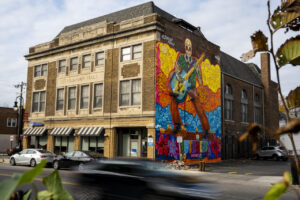
Anderanin was born in Argentina. She remembers Buenos Aires as a vibrant city scattered with cafes, where people drink coffee as a social activity and where social life happens on the streets. She says she and her friends often got on a bus or train and went wherever they wanted.
When she was 14 years old, Anderanin’s father, an engineer, was offered a job working in Michigan. He accepted, and her family picked up and moved to Rochester Hills. She said her only knowledge of American life was through movies like ET.
“Cool, I’ll get to ride my bike to school just like in the movie,” Anderanin thought.
However, she soon realized that the suburbs of the Midwest were nothing like in the movies. It was a complete “culture shock” for her. Anderanin was not used to the cold and grey days that Michigan had to offer, and the Latino population in Rochester was small.
Anderanin always had a passion for art and music, and as her high school years came to an end, she felt like she had to pick between her two loves. She chose art and was accepted into The College for Creative Studies, a private art school in Detroit, to study graphic design.
But Anderanin couldn’t shake her love of music. In college, she and her friends would host their own Latin parties at Club 2000 off Jefferson, a now defunct music venue.
After college, she began working in advertising at Global Hue, a privately owned advertising agency. She remembers always being the one in charge of the music at private agency parties.

She continued doing shows with El Club, Majestic Theatre, La Terraza, and the DeVos Performance Hall in Grand Rapids. She has worked in theaters and music venues across the state and worked with LiveNation to promote major artists like Pitbull or Enrique Iglesias.
After years of hustling to promote music acts, she started to look at different spaces to open her own venue because she realized how much money the venues were making.
“I’m doing all these events, and I’ve done so many sold-out shows for other people, and I’m making a little bit of money compared to all the money they’re doing,” Anderanin said.
“So I’m like, yeah, it’s about time that I start looking into doing my own thing, having my own space, ” Anderanin said. “So I started in 2019, you know, to kind of start looking at getting some spots. And I looked at a couple of different places here in the Southwest, but this one turned out to be the right one.”
Lithuanian Hall was perfect; it just needed some updating and no major construction. She was also intrigued by its history and hopes to highlight it when the space is finally open.
She said one of the hardest challenges in finding her own place has been raising funds, so she is extremely grateful to Motor City Match, Invest Detroit, and the State of Michigan for the grants they awarded her.
Her goal is to open Candela by the spring of 2024, but for now, she will be hosting small community events.
She also expects it to generate employment for the community and will seek to hire locally. The space will be able to be used for private events and as a space to give local artists the opportunity to showcase their work. Ultimately, Candela will be a space to bring Latinos from every part of Michigan to come together and celebrate each other’s cultures.
“From Latin rock to cumbia, to salsa, and reggae, and famous out-of-town DJs,” Anderanin said.
“You can expect all kinds of Latino music here.”
**********
Andrea Meza works for United Community Housing Coalition and graduated from Wayne State University in broadcast journalism. Her main passion is informing and supporting the community.
This story was made possible by the Race and Justice Reporting Initiative. The goal of the initiative is to strengthen representative democracy by building trust between the news media and Black, Indigenous, and People of Color communities.


